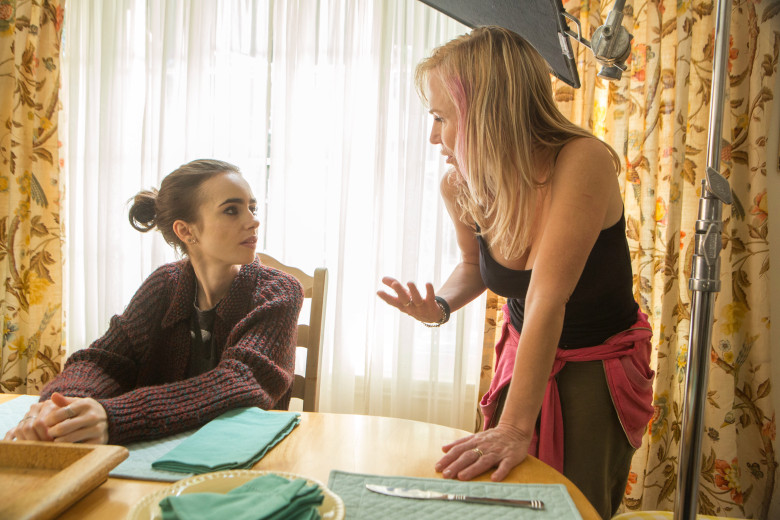In case you don’t have Netflix, two new programs, To the Bone and 13 Reasons Why are causing angst and controversy for their depictions of anorexia and suicide.
To blame Netflix is a distraction from the larger problems we have in our society. It’s essentially shooting the digital messenger. Both of these shows include a female protagonist who is trying to navigate through life.
In both shows, bullying because of a person’s looks is a major theme. A theme that has left critics of the TV shows bantering about censorship instead of using this opportunity to open up space for not only dialogue but recognition.
Watching the shows at times felt like I was staring into a mirror, although my image did not change.
Yes Netflix-activism does sound strange, but it’s turning out to be a good way to broach dialogue.
I feel there is a stigma in our activist scene. Maybe not for softer social justice like the NDP but in left-of-left organization or radical causes.
In these circles, I’m supposed to be, we who identify as woman are supposed to be, intellectually above petty concerns about our appearance and strong enough not to fall victim to the “beauty myth.” We’re also supposed to be intellectually above petty concerns like bullying.
That a one-two punch for anyone who does have these “intellectual” weaknesses.
I do. And I often feel like it would be a good, healthy idea to not scold (or bully) people who are feeling bullied about their looks, or even those who feel vulnerable about how they look and want to talk through their anxieties.
I’ve functionally been an activist since 1994 and I feel only now do I finally have a support system where I trust the people I am sharing with.
This was not the case, especially in some of the more hardcore anarchist groups in Toronto. Actually, even casual organizing for the 2001 FTAA demonstrations in Quebec City when I was invited to an organizing meeting where I was the only female in the room, sitting next to my best friend, who was the only person of colour in the group.
When we brought up this fact, we immediately not nailed for letting Identity Politics spoil a perfectly good anarcho-analysis of the world. Because that is how Identity Politics is viewed then and today. It is used as a bullying tactic by the alt-righ to shut down dialogue. In my experience, it seems that white, straight males were the most likely to be offended by identity politics, I can only theorize that it’s because Identity Politics is a realm of activist they cannot participate in, thus they are not in control of the dialogue. This worries them. That lack of control.
And yet it was some of my’ “allies” who were the most effective bullies is shutting down my ability to talk about how it felt like the western beauty idealism was crushing my soul. But I have finally found people who don’t scold me for falling for beauty-traps and snares.
I am coming to realize that constantly reprimanding myself for not being pretty enough only makes things worse. I told myself for years that I loved makeup and the complicate task of “putting my face on” every morning.
And it’s only recently that I have stopped setting my alarm to wake up an half an hour before my partner gets up to put on my make up on so they never sees the natural me. I had to stop myself from doing that because it was only making me feel worse and not better.
Even typing this now, I’m embarrassed by these behaviours and the constant obsession that makes me not want to leave the house. Because I’m supposedly “pretty on the inside” and all that matters; I’m supposed to be so beyond worrying about meeting the standards of western beauty ideals and because; I was warned that I would become addicted to the world of Identity Politics.
This is all the consequence of bullying. Which makes me feel sad that I’m still haunted by that years and years later. It didn’t help that I did not look like anyone else in my school, so I had no template to work from.
Small lips. Bunchy cheekbones. Bubble eyes. Having eyes that are not round so while they are only big if you consider not their width but they length. Shaped like footballs, which is why I’ve always needed glasses.
Netflxs allows society to have a template to help people guide discussions in a much broader way.
But obviously not accessible enough. Activists like me who have steady (not glitch proof but good enough) Internet-access sometimes forget there are plenty of people who still use the Toronto Public Library system for their Internet.
The only positive thing I can say about this is that we have to keep the dialogue going beyond a paid movie on demand Internet bound, cultural-service provider, so that the ability to talk about and tackle issues such as bullying can spread out and not just be caught up in nebulous Internet forums such as Facebook or Instagram where photofilters help you lie.
Image credit: Gilles Mingasson/Netflix
Like this article? Please chip in to keep stories like these coming.




